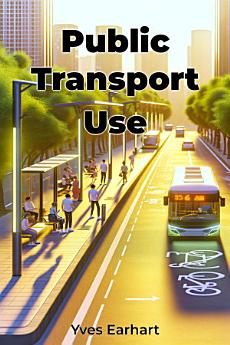Public Transport Use
About this ebook
The book’s strength lies in bridging disciplines often siloed in policy debates. It traces the post-war shift to car-centric cities, revealing how urban sprawl and traffic congestion emerged as unintended consequences of prioritizing private vehicles. Case studies from Copenhagen and Tokyo illustrate transit-oriented development’s potential, blending data with human stories—like how reliable metro systems ease daily anxieties. The structure progresses from personal costs of car dependency to broader societal wins, using infographics and relatable analogies (e.g., comparing carbon footprints to “commuting receipts”) to demystify concepts like social cost-benefit analysis.
What sets this book apart is its focus on “micro-choices”—framing a bus ride as both a personal stress reducer and a vote for equitable, climate-resilient cities. It balances hard data with actionable steps, from calculating personal savings to advocating for inclusive transit policies. By weaving commuting habits into larger themes of urban equity and public health, Public Transport Use redefines mobility as a cornerstone of sustainable living, inviting readers to see their transit card as a tool for shaping a fairer, greener world.








